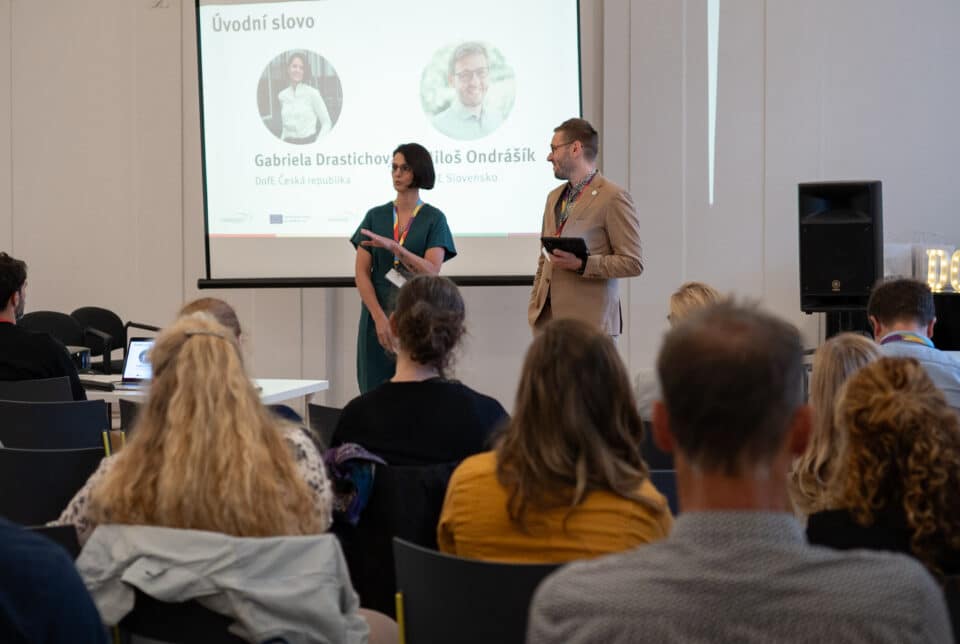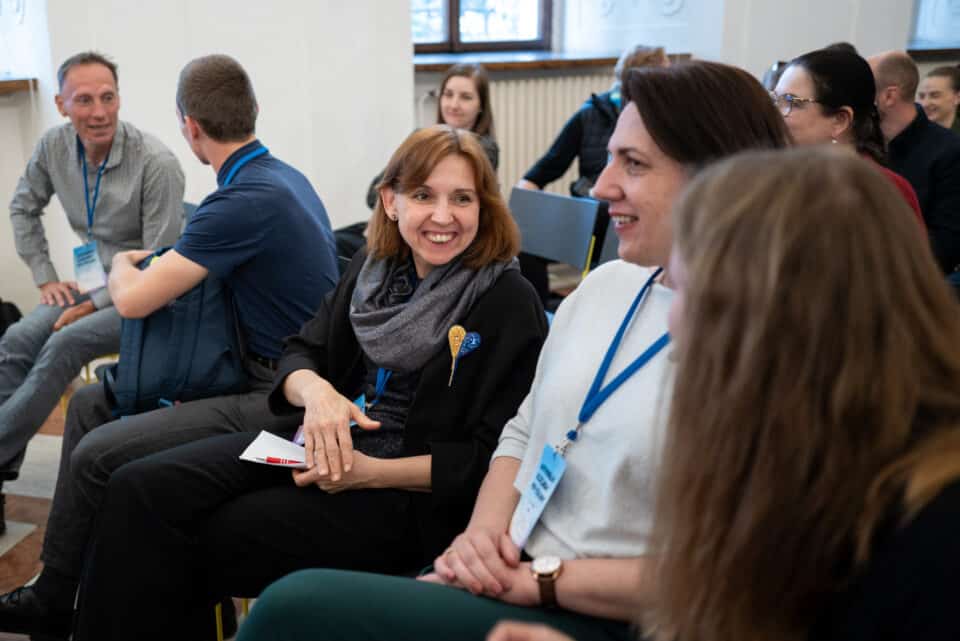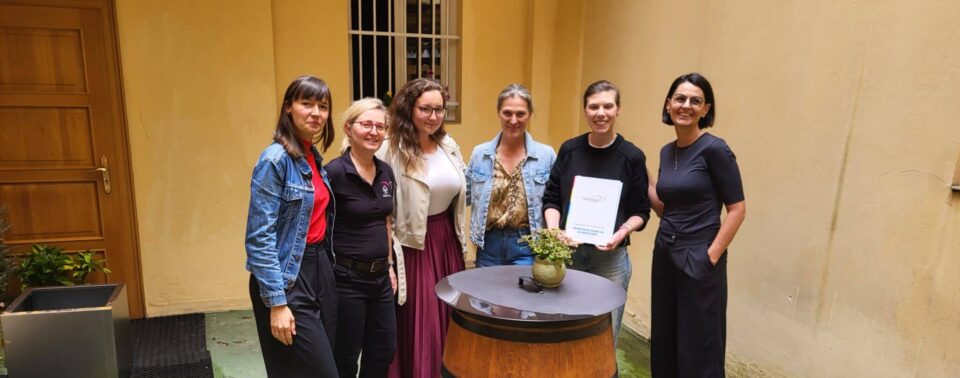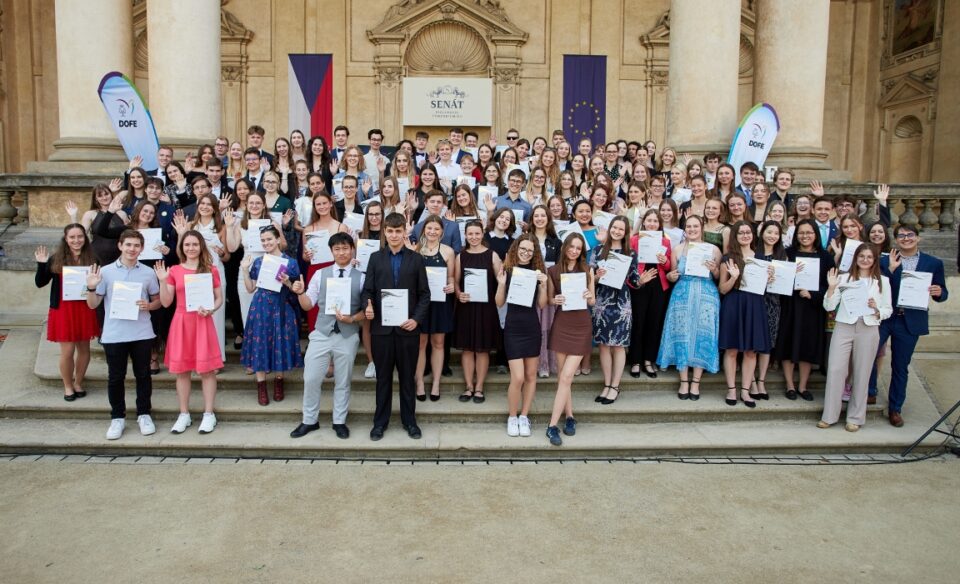Brno, 15 May 2025 - More than 100 experts, educators and youth workers from the Czech Republic and Slovakia met at the international conference "Informal Education for All", jointly organised by the national offices of the Duke of Edinburgh's International Award (DofE for short). The aim of the event was to highlight the importance of accessible and inclusive education for young people facing various disadvantages - social, economic, health or systemic.
Opening doors for the young who stay away
The conference was held in the premises of the Vice-Governor's Palace in Brno and created a space for exchange of practical experience, discussion of obstacles and search for concrete solutions. The main focus was on the situation of young people from secondary vocational schools and communities that have long been disadvantaged in their access to development.
"When we talk about inclusion, we need to ask not only who is already involved, but above all: who is still missing - and why," added Miloš Ondrášik, Executive Director of DofE Slovakia. The programme in Slovakia is celebrating ten years this year, has over 11,000 graduates and has developed more than 2,000 teachers and youth workers.
"Non-formal education is not a supplementary activity - it is a tool that can level the playing field and create space for young people's confidence, growth and identity," said Gabriela Drastichová, Director of DofE Czech Republic.
Research: who are the young people from secondary vocational schools?
Diversity, stubbornness and a "street smart" attitude - this is also characteristic of the generation of young people from secondary vocational schools.
They are clear about their values and want to make their own decisions. At the same time, they are looking for trust, understanding and support from adults who will accompany them without prejudice. They expect respect for their own decisions, the opportunity to make mistakes and a genuine interest in what they are really interested in. Their motivation is not just 'success' but a journey that is meaningful to them.
"They have their own opinion, they want freedom in decision-making and they are looking for a path that is theirs. More than a diploma, they are interested in real experiences, trust and authentic relationships with adults. They are attracted by challenges where they can show what they enjoy, not formal campaigns or 'photos in suits'," said Zuzana Mészárosová, project manager, on the findings of qualitative research on the needs of young people from secondary schools, carried out as part of the DofE for All project, which involved 18 students from secondary vocational schools in Slovakia.
Professional perspectives and generational realities
In the opening session, Karel Kovář (Czech School Inspectorate), Peter Lengyel (Edusmile, Inclucentrum) and Alexandra Kurišová (DofE Slovakia) opened the topics of inequality, motivation and systemic barriers in education.
"Our research has shown that young people from secondary schools respect long-term commitments. They don't have confidence in themselves that they can do it. That's why educators are very important to give them that confidence. Their ambitions are often practical. They want to grow and push themselves, but in their own way. Let's be authentic and natural and respect their way of speaking and thinking. Let's offer them meaning," said Alexandra Kurišová.
The lecture by Lenka Helena Koenigsmark (Dobrodějna initiative), who introduced the specifics of working with Generation Z and Alpha, was very well received: 'It's good to tell young people that we have also messed up in our lives, that we have failed at something. This takes away the feeling that they have to be perfect. It builds mutual trust."
Panel discussion: 8 seconds - Interest me!
The focal point of the morning was a panel discussion aptly titled "8 Seconds - Interest Me!", moderated by Andrea Vrbovská (DofE Slovakia). The discussion included: Marián Jakubička (TESCO Slovakia), Adéla Pospíchalová (People in Need), Linda Hurdová (Talents and Skills) and Lucia Košt'álová (School Psychologist, DofE).
The discussion highlighted the need for authenticity, trust and meaningful relationships between youth and adults.
As Marián Jakubička emphasized, "A young person needs to find meaning and we are here to help him discover that meaning and at the same time give him confidence. At Tesco, we try to give opportunities to young people from disadvantaged backgrounds - we know that if we ignite a spark in them, they will carry it forward."
"Young people facing disadvantage already have a handicap when they start school. They are left behind from the start and experience failure. The power of non-formal education is that it gives them the space to experience success. Young people gain self-confidence and start to value themselves," added Adéla Pospíchalová.
Young voice: "So what's wrong with you if you're always looking at your phone?"
The final block belonged to the young participants. They shared their perspectives on the pressure to perform, the lack of support, but also the need for a space where they can be seen as individuals, not just students.
Daniel Okon, a student at the Secondary Medical School Záhradnícka 44, Bratislava, speaks about his experience with the DofE: "The DofE leader from our school was a beacon for me, pulling me on. I shared my difficult feelings with her and that pushed me. Our joint efforts didn't allow me to give up."
Martin Sedlák, a student of the Private Secondary Polytechnic School in Nitra with the title of Volunteer of the Year, found a passion for volunteering thanks to DofE and a space to learn from mistakes without fear of failure: 'It is important that the teacher builds trust with the student, supports him on his journey and allows him to make mistakes. It helps a lot if the teacher can open up, and share their mistakes in addition to their life experiences. Adults make them too, and it's natural - they're the ones that move us the most."
Non-formal education as a necessity, not a luxury
The conference confirmed that programmes such as the DofE have the power to change not only the lives of individuals but also society's approach to supporting young people. Non-formal education is not a superstructure - it is a fundamental tool for equality.
The event was part of the DofE for All project implemented by the DofE National Offices in Slovakia and the Czech Republic with the support of the European Union through the Erasmus+ programme. The project supports the expansion of non-formal education among young people from disadvantaged backgrounds - especially students from secondary vocational schools.




